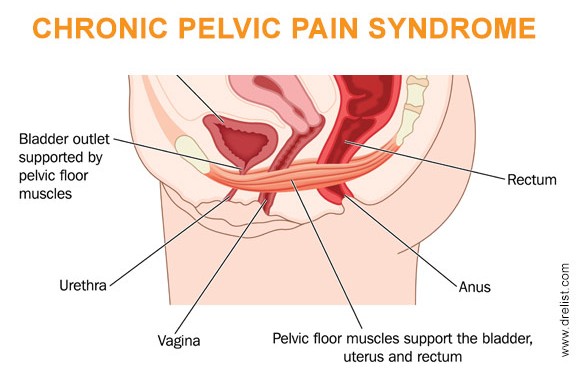What is Pelvic Pain in Pregnancy?
Pelvic pain during early pregnancy is a common occurrence that happens in between hipbones below abdominal area. Pain is sharp, sudden and in the form of cramps. In most cases, pelvic pains occur because of shifting of numerous ligaments and bones to accommodate growing fetus.
Who Are at a Risk of Suffering from Pelvic Pain?
In most cases, women suffer from pelvic pain during pregnancy and factors affecting them are as follows:-
- If a patient has a previous history of pain in lower back
- Previous injury caused by an accident or a fall
- Having a job that requires hard labor
Causes of Pelvic Pain
Main causes for experiencing pelvic bone pain during pregnancy are as follows-
- Accommodation pain-Posterior pelvic pain during early pregnancy is because pregnant body is still adjusting to expanding of uterus. Now and then these causes cramp like feelings.
- Ovarian cysts- The functional cysts are in most cases, harmless and non-cancerous and forms because of changes in ovaries. They grow larger during pregnancy and the added weight of growing uterus puts lots of pressure on them causing pain that is painful and persistent by nature.
- Round ligament pain– During second trimester excessive weight results in stretching of round ligaments causing pain in pelvic area.
- Weight of baby-Pelvic pain during third trimester is mainly caused when the excessive weight of growing baby puts pressure on nerves stretching from vagina to legs.
- Braxton-Hicks contractions – Dehydration often triggers these contractions at and after nearly twenty week pregnancy period.
- Relaxed pelvic joints – An increase in the hormone Relaxing stretches the ligaments and loosens the pelvic joints. This can cause discomfort and pain in pelvic area.
- Constipation- Excessive hormones and even iron supplements can cause constipation and result in pelvic pain.
- Urinary-tract infection- Infections in urinary tract often results in pain during pregnancy.
Symptoms of Pelvic Pain
There are various symptoms related to pelvic pain during pregnancy and some of them are as follows:-
- Back pain
- Pain in pubic area
- Feeling of discomfort and pain between legs and thighs
- Extreme pain while walking or climbing stairs up and down
Treatment for Pelvic Pain During Pregnancy
Some common and regular treatments for pelvic pains are as follows:-
- In order to ensure smooth movement in pelvic joints, hips and spine it is necessary to get manual therapy by an expert
- Prenatal massage also provides relief but must be attempted under guidance of a professional
- Postural exercises provides respite from pain
Recommended Link: Is Cramping Normal or Not During Early Pregnancy
Coping and Managing Pelvic pain
Coping with pain and discomfort in pelvic area is possible by undertaking following simple steps-
- Being active as much as possible without stretching limits
- Ample and regular rest
- Get help when required to ease self-burden
- Wear shoes that are flat, supportive and comfortable
- Try to sit instead of standing for longer periods
- Sleeping in relaxed positions with supportive pillows
- Avoid stairs and if necessary climb slowly with the help of supportive banisters
- Avoid standing on a single leg
- No twisting and bending movements
- Do not sit with crossed legs as it decreases the supply of blood to legs
- It is advisable to stop sitting on floor as it will put unnecessary pressure while getting up
- Lifting and carrying of heavy objects is a strict no in pregnancy cases
- Taking shower before bed provides relief to body
- Taking hot showers is not advisable for pelvic pain

